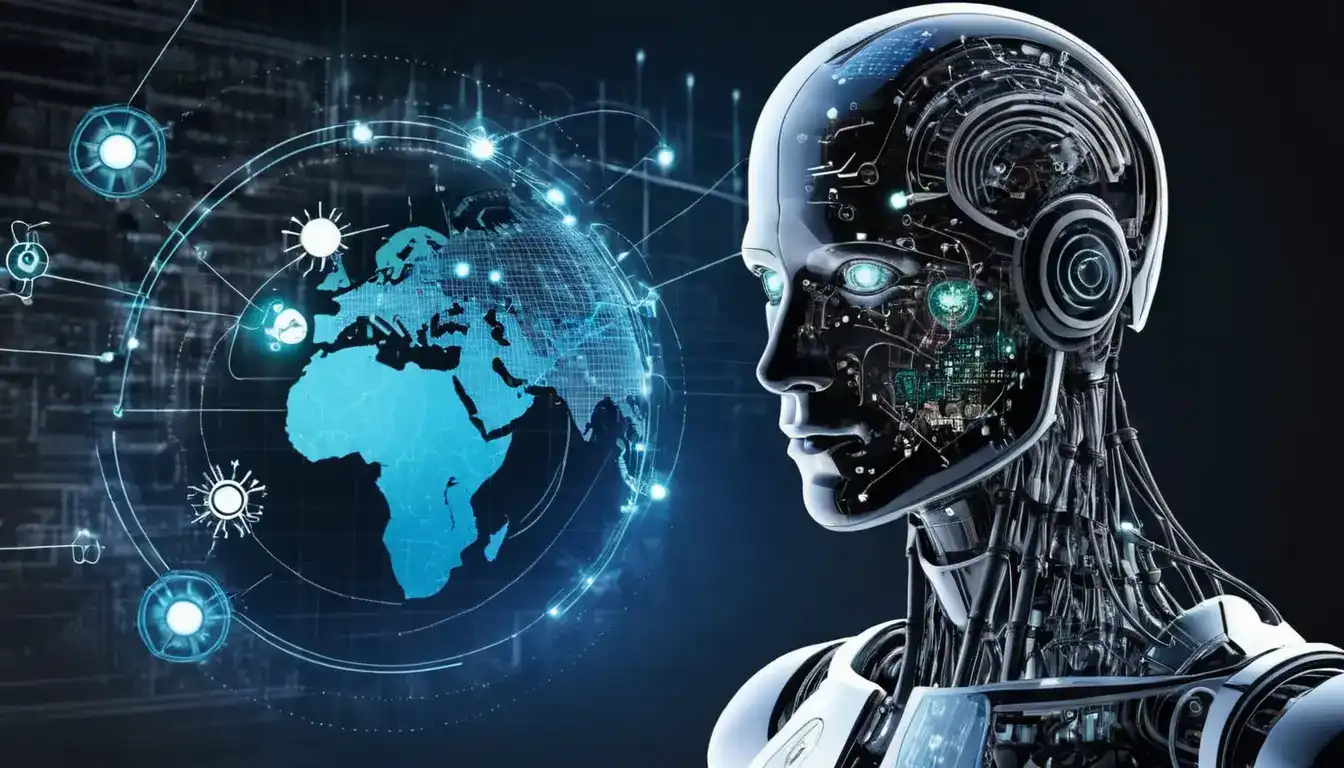Beyond Degrees: Future of Skills & Credentials
Emily Willis

Photo: Beyond Degrees: Future of Skills & Credentials
The world of work is changing at an incredible pace, driven by technological advancements and shifting economic landscapes. For decades, a traditional university degree was seen as the golden ticket to a successful career. It was the ultimate signal of readiness for the workforce, a symbol of discipline, knowledge, and long-term commitment. However, as we move deeper into the 21st century, the ground beneath that standard is shifting dramatically. The focus is moving beyond degrees to a more dynamic and adaptable approach centered on future of skills and alternative credentials.
This isn't to say that degrees are obsolete. They still hold significant value, particularly in fields like medicine, law, and engineering, providing a strong foundation of theoretical knowledge and critical thinking. But for many, the traditional four-year path is no longer the only or even the most effective way to prepare for a thriving career. The demand for specific, immediately applicable skills is higher than ever, and traditional degrees often struggle to keep pace with the speed of change.
This article will explore why the emphasis is shifting from conventional qualifications to demonstrable abilities, the rise of new forms of future credentials, and how you can navigate this exciting new landscape to future-proof your career.
The Shifting Landscape: Why Skills are the New Currency
The traditional job market, where a degree guaranteed a stable career path, is rapidly evolving. Several factors are contributing to this significant shift:
- Rapid Technological Advancements: Technologies like Artificial Intelligence (AI) and automation are reshaping industries and job roles at an unprecedented speed. What was a highly sought-after skill yesterday might become less relevant tomorrow. This demands a workforce that can constantly adapt and acquire new capabilities.
- Growing Demand for Specialized Skills: Employers are increasingly looking for individuals with very specific, practical skills that can be applied immediately in the workplace. The World Economic Forum reported that 40% of current workers' core skills are expected to change by 2025.
- Skill Obsolescence: The "shelf life" of knowledge and skills is shrinking. By the time a student graduates, some of the knowledge acquired in their first year might already be outdated. This highlights the need for continuous learning and skill enhancement.
- Cost and Time Efficiency: Traditional degrees can be a significant investment of both time and money. For many, the cost and duration of a four-year program are prohibitive, especially when they need to quickly reskill or upskill to meet current industry demands.
- Skills Gap: Many organizations are facing a significant "expertise gap" or "skills shortage." For instance, 81% of organizations report a technology skills gap, and 78% see talent availability as a significant business risk. This forces employers to look beyond traditional qualifications to find capable talent.
In essence, the modern workforce is increasingly valuing what you can do over where you learned to do it. This is leading to a revolution in how employers identify, assess, and hire talent.
What Are "Skills" in This New Era?
When we talk about skills in the context of the future of work, we're not just referring to technical abilities. It's a comprehensive mix of competencies that enable individuals to thrive in dynamic environments. These generally fall into two categories:
Hard Skills
These are measurable, teachable abilities that are specific to a particular job or task. Examples include:
- Digital Literacy: Proficiency with various software, online tools, and digital platforms.
- Data Analysis: The ability to interpret data, identify trends, and make informed decisions.
- Programming Languages: Expertise in coding for software development, web design, or automation.
- Project Management: The ability to plan, execute, and complete projects effectively.
- Cybersecurity: Knowledge and practices to protect systems and data from threats.
Soft Skills
Often referred to as "human capabilities" or "power skills," these are less tangible but equally, if not more, crucial for career success. They are transferable across various roles and industries, making them invaluable in an ever-changing landscape.
- Critical Thinking and Problem-Solving: The ability to analyze complex situations, identify root causes, and develop effective solutions.
- Adaptability and Learning Agility: The willingness and capacity to quickly acquire and apply new knowledge and skills, embracing change as an opportunity. This is paramount in a world where continuous learning is a necessity.
- Communication: Expressing ideas clearly, listening actively, and collaborating effectively with diverse teams.
- Collaboration and Teamwork: Working effectively with others towards a common goal.
- Emotional Intelligence: Understanding and managing one's own emotions, and recognizing and influencing the emotions of others.
- Creativity and Innovation: Thinking outside the box and developing novel solutions.
Many experts advocate for the concept of "T-shaped" or "Pi-shaped" professionals, individuals who possess deep expertise in one or two areas (the vertical bar) alongside a broad range of complementary soft skills (the horizontal bar).
The Rise of Alternative Credentials: Beyond the Diploma
As the demand for specific skills intensifies, so too has the emergence of alternative credentials that validate these abilities. These "bite-sized" certifications are quickly emerging as powerful tools for professional growth, prioritizing speed, specificity, and adaptability.
Here are some key types of alternative credentials gaining traction:
- Micro-credentials: These are short, focused educational experiences that provide learners with specific skills or knowledge in a particular area. Unlike traditional degrees, which can take years, micro-credentials can often be earned in weeks or months. They are flexible, often online, and designed to address specific industry needs. Examples include Google's UX Design Certificate on Coursera, which can be completed in under six months.
- Benefits:
- Cost-effective and time-efficient: Significantly less expensive and faster to complete than degrees.
- Targeted learning: Focus on practical, immediately applicable skills in high demand.
- Flexibility: Many programs are offered online, allowing learners to fit studies around existing commitments.
- Stackable: Micro-credentials can often be combined or "stacked" to build a more comprehensive qualification, like building blocks for your career.
- Industry Recognition: Many are developed in collaboration with industry leaders, ensuring relevance to employers.
- Benefits:
- Digital Badges: These are verifiable, shareable digital representations of specific skills or achievements. They can be earned through various learning experiences and are easily displayed on online profiles or resumes.
- Bootcamps and Online Courses: Intensive, accelerated programs (often in tech fields like coding or data science) that provide hands-on training for in-demand skills. Platforms like Coursera, edX, and Udacity offer a vast array of specialized courses.
- Industry Certifications: These are formal recognitions by professional bodies or industry organizations that an individual has met specific standards of knowledge or proficiency in a particular area (e.g., Project Management Professional (PMP), Certified Public Accountant (CPA)).
- Portfolios and Project-Based Learning: Increasingly, individuals are demonstrating their skills through practical portfolios of work or by showcasing experience gained through project-based learning. This allows employers to see tangible proof of abilities rather than just relying on academic transcripts.
While micro-credentials may not yet confer the same prestige as traditional degrees, and are often seen as complementary rather than substitutes, their practical value is undeniable. Organizations are increasingly prioritizing skills and experience over degrees, with some major companies like Apple, IBM, and Tesla no longer requiring a college degree for certain roles.
The Benefits of a Skills-First Approach
Embracing a skills-first approach offers significant advantages for both individuals and employers.
For Individuals:
- Career Agility and Resilience: Developing a diverse skillset and continuously learning allows you to adapt to changing job market demands, pivot into new roles, and remain relevant throughout your career.
- Faster Entry into New Roles: Acquiring targeted skills through alternative credentials can significantly shorten the time it takes to qualify for and enter a new profession.
- Cost-Effective Learning: Micro-credentials and online courses often provide a more affordable pathway to acquiring in-demand skills compared to a full degree.
- Personalized Learning Paths: You can tailor your learning journey to your specific career goals and interests, focusing only on the skills you need.
- Enhanced Job Prospects: By showcasing tangible skills, you can stand out to employers who are increasingly prioritizing practical abilities. In 2024, 81% of employers are using some form of skills-based hiring, and 95% agree it's the dominant recruitment trend of the future.
For Employers:
- Access to Diverse Talent: Focusing on skills over degrees broadens the talent pool, allowing companies to discover highly capable individuals from various backgrounds, including those without traditional academic qualifications.
- Faster Hiring for Specific Needs: Skills-based hiring allows employers to quickly identify candidates with the precise competencies required for a role, reducing time-to-hire.
- Reduced Training Costs: By hiring individuals who already possess the necessary skills, companies can reduce the need for extensive onboarding and training.
- More Adaptable Workforce: A skills-focused approach fosters a culture of continuous learning, leading to a more agile and resilient workforce that can quickly adapt to new challenges and technologies. Companies that hire based on skills report fewer hiring mistakes
Latest ✨
View AllMaster the art of handling complaints effectively. Learn the psychology, actionable steps, and how to turn feedback into opportunities for growth and stronger r...
Emily Willis
Women's participation in sport has evolved into a powerful movement that challenges societal norms, empowers individuals, and promotes inclusivity. This article explores the journey of women in sport, highlighting their achievements, the obstacles they have overcome, and the transformative impact they continue to have in the world of sport and beyond.
Emily Willis
Beyond crypto hype: Understand digital asset economics. Learn core principles like supply, demand, scarcity & utility to navigate the market wisely.
Emily Willis
Redefining success in education means moving beyond grades. Learn how future outcomes focus on adaptability, critical thinking, and skills for an unpredictable...
Emily Willis
Business
View All
June 9, 2025
Risk Management: Protect Your BusinessUnlock business resilience! Master risk management to protect assets, enhance decision-making, minimize losses, and ensure sustainable growth in an uncertain wo...
Emily Willis

June 8, 2025
Entrepreneurial Journey to SuccessDemystify the entrepreneurial journey. This guide offers actionable strategies to transform ideas into thriving businesses, navigate challenges, and achieve las...
Emily Willis

June 8, 2025
Personalization in Business MarketingUnlock business growth! Learn how personalized marketing transforms interactions, boosts engagement & loyalty by speaking directly to your customers.
Emily Willis
Economy
View AllBuild your financial future! Demystify investing with smart, accessible strategies & practical tips for everyone to grow lasting wealth.
Read MoreInfrastructure development is crucial for driving economic growth and regional integration by improving connectivity, facilitating trade, and enhancing quality of life. Investments in transportation networks and digital infrastructure support businesses in accessing larger markets and capitalizing on trade opportunities. Well-developed infrastructure simplifies trade processes and attracts industries to specific regions, promoting economic development. Access to essential services and urban infrastructure improves quality of life and fosters sustainable urbanization. Green infrastructure projects support environmental conservation and contribute to sustainable development goals. Overall, strategic investments in infrastructure are essential for building resilient, inclusive, and prosperous communities in the global economy.
Read MoreUnlock historical wisdom and ancient philosophies for preventing depression. Learn timeless strategies for resilience and emotional balance in modern life.
Read MoreEntertainment
View All
August 5, 2024
Arts Education's Importance: Nurturing Creativity and Fostering ExpressionArts education is often overlooked in a world focused on standardized tests and STEM subjects, but it plays a vital role in nurturing creativity, self-expression, and essential skills in students. Arts education allows students to unleash creativity, build confidence, improve communication and collaboration skills, develop critical thinking and problem-solving abilities, increase cultural awareness and appreciation, and enhance emotional intelligence.
Emily Willis

August 5, 2024
Music Universal Language: Connecting and Inspiring Across CulturesMusic has the power to transcend language barriers and connect people on a deep emotional level. It serves as a bridge between cultures, fostering understanding and appreciation for diversity. The universality of rhythm and melody creates a sense of unity, while the diversity of musical styles allows for exploration and creativity.
Emily Willis

August 4, 2024
The Evolution of Digital Distribution in the Music Industry: Challenges and OpportunitiesThe music industry has been transformed by digital distribution, which allows quick access to a vast catalog of music through streaming services and online stores.
Emily Willis
Health
View AllRegular physical activity is crucial for maintaining long-term health and well-being. It has numerous benefits, including improving cardiovascular health, aiding in weight management, enhancing mental health, strengthening bones, boosting immune function, and promoting longevity.
Emily Willis
our minds are often overwhelmed with information and stimuli, leading to stress and anxiety. Mindfulness and meditation offer tools to cultivate inner peace and well-being. Mindfulness involves being present in the moment without judgment, while meditation involves focusing attention on an object or thought.
Emily Willis
Maintaining good health involves a balanced diet that provides essential nutrients for the body. A balanced diet includes carbohydrates, proteins, fats, vitamins, minerals, fiber, and water. Benefits of a balanced diet include enhanced energy levels, improved mental health, a stronger immune system, better weight management, reduced risk of chronic diseases, and enhanced digestion. Components of a balanced diet include fruits and vegetables, whole grains, protein sources, dairy or dairy alternatives, and healthy fats. Tips for maintaining a balanced diet include planning meals, portion control, staying hydrated, limiting processed foods, eating mindfully, and including physical activity.
Emily Willis
Trending 🔥
View All
1
3
4
5
7
8
9
10
Sports
View AllAugust 4, 2024
The Importance of Mental Training and Psychological Strategies in Helping Athletes Reach Their Peak Performance on the Field
Read MoreAugust 5, 2024
The Future of Sports: Anticipating Trends, Embracing Innovation, Shaping a New Era
Read MoreAugust 4, 2024
Sports Technology Innovation: Revolutionizing Training and Performance Analysis
Read MoreTechnology
View All
August 4, 2024
Exploring the Potential of Quantum Computing in Modern Technology
Quantum computing is a revolutionary technology that uses quantum bits, or qubits, to process information. It has the potential to solve complex problems, revolutionize cryptography, accelerate drug discovery, optimize complex systems, and enhance artificial intelligence.

August 5, 2024
Tips for Implementing Cloud Computing Safely and Efficiently
Cloud computing is essential for modern businesses, offering cost savings, scalability, and improved collaboration. Implementing cloud computing requires careful planning to ensure safety and efficiency. Tips for safe and efficient implementation include conducting a needs assessment, choosing the right cloud service model, prioritizing security, planning for data migration, optimizing costs, training your team, implementing backup and recovery solutions, monitoring performance, planning for scalability, and staying updated with industry trends.

August 5, 2024
Oculus Quest 2 vs HTC Vive Pro – Which Should You Choose?
Oculus Quest 2 vs HTC Vive Pro – which VR headset reigns supreme? Dive into this ultimate showdown to discover the strengths and weaknesses of each, and decide which one is worth your investment. From specs and comfort to content and price, we'll help you make an informed choice.

August 5, 2024
AI Applications that are Changing the World Around Us
Artificial Intelligence (AI) is no longer a concept from science fiction, but a reality that is reshaping the world around us. From virtual assistants to self-driving cars, AI is making significant impacts in various industries such as healthcare, education, transportation, and agriculture. AI is also being used to address environmental challenges and enhance customer experiences.





















